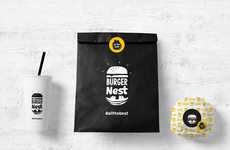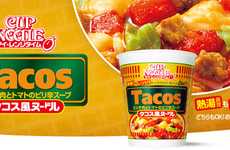



The fast casual market turns to GMO-free foods to satiate conscious consumers
Implications - No longer restricted to upscale food markets and gourmet eateries, non-GMO food practices are being adopted by fast casual brands to satiate health-conscious diners. Opting for preservative-free ingredients and meat raised without antibiotics, food service companies are willing to incur a higher cost of production in exchange for ethical, environmentally friendly food options. This not only speaks to a need for more mainstream forms of ethical consumption, but also a growing emphasis on both food ingredients and origin.
Workshop Question - How can you incorporate traditional ideologies for a more consumer-centric iteration of your offerings?
Trend Themes
1. Non-gmo Fast Food - Fast casual brands are adopting non-GMO food practices to satiate health-conscious diners, as there is a growing emphasis on both food ingredients and origin.
2. Halal Foods - Halal poutine and other halal dishes are emerging to meet the growing global Muslim population's needs for ethical, all-natural meat options.
3. Organic Fast Food - Organic fast food restaurants and organic-certified fried chicken joints are emerging to meet health-conscious consumers' demands for quick, clean, all-natural options.
Industry Implications
1. Food Industry - The food industry is disrupted through a surge of non-GMO, halal, and organic fast food options popular with consumers who value their health and sustainability.
2. Agriculture Industry - The agriculture industry has an opportunity to embrace more ethical and sustainable practices such as non-GMO fruits and vegetables, hormone-free beef, and organic certification.
3. Fast Casual Industry - The fast-casual industry is poised for transformation by catering to younger consumers' growing emphasis on ethical ingredients and healthy choices for eating out.








































